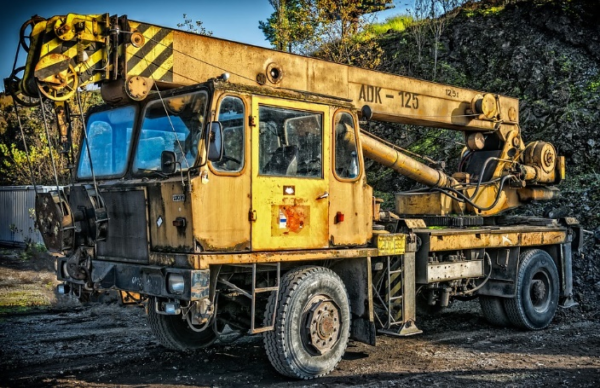Last updated on May 7, 2019
A hydraulic system is capable of transmitting power by using the pressure produced by fluid inside a sealed mechanism. Automobile brakes, hydraulic jacks, and wheelchair lifts are some of the most identifiable uses of hydraulics in our daily lives. In addition to these uses, hydraulics is also valuable in many industrial and large-scale applications. There are many reasons why hydraulics is preferred over mechanical systems.
How does a hydraulic system work?
The working principle of hydraulics revolves around the pressure produced by fluid. Since liquid molecules are not far apart, unlike air, it is almost incompressible. As liquid particles move, they bounce around and collide with the container walls.
The vehicle brake system is a perfect example of hydraulics which is used in day to day applications. Hydraulics is also quite standard in construction equipment used to lift heavy loads. All hydraulic machines use the same working principle, regardless of whether the machine creates rotational or linear motion or is used to apply force. The main difference between hydraulic machines is the amount of power and capacity.
The role of hydraulic power units
The source of a hydraulic system’s power is the power unit. If the machine is intended for portable use, an HPM Mini Pack can provide enough power for small and mobile applications. The specifications of hydraulic power packs vary according to the required performance of the machine. Most hydraulic power unit manufacturers supply standard size, mini, and micro power packs to buyers that need them for a broad range of uses.
Advantages of a hydraulic system
There are many reasons why a hydraulic system is capable of transmitting power efficiently. First, the system consists of simple buttons and levers used to stop, start, decelerate, and accelerate the system’s function. These also help the operator control the accuracy of performance. Since the system is fluid, there are no cumbersome components, and the machine can cope easily as the load increases. A hydraulic system is capable of providing constant force, regardless of if the machine changes its speed.
In general, a hydraulic system is simple, economical, and safe to use. There are fewer moving parts thus also minimising the need for maintenance. Another significant advantage of a hydraulic system is that it does not produce sparks; hence, making it safe to use for hazardous, and mining applications.
Drawbacks of hydraulic systems
Despite the many advantages of a hydraulic system, there are also some drawbacks to consider. One of the main challenges with hydraulics is to prevent fluid leaks. The machine can get messy, and if exposed to extreme temperature, the fluid may cause a fire. Some types of hydraulic fluid are corrosive and harmful to health. It is crucial that hydraulic system operators undergo adequate training to prevent accidents. As such, choosing a hydraulic fluid that is non-corrosive will be safer for ordinary applications. Experts also recommend periodically inspecting components to assess for signs of leaks, corrosion, and replacing the fluid when necessary.














Be First to Comment